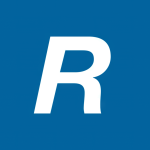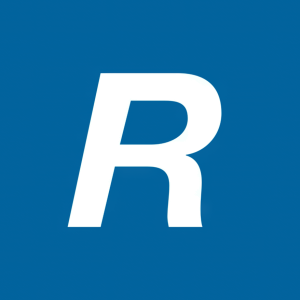Welcome to our dedicated page for Regeneron Pharmaceuticals news (Ticker: REGN), a resource for investors and traders seeking the latest updates and insights on Regeneron Pharmaceuticals stock.
Regeneron Pharmaceuticals (NASDAQ: REGN) is a leading biotechnology innovator developing transformative treatments for serious diseases through advanced platforms like VelociSuite®. This page serves as the definitive source for official company announcements, research milestones, and therapeutic developments.
Investors and medical professionals will find curated updates including FDA approvals, clinical trial results, partnership announcements, and financial reports. Our aggregation ensures timely access to Regeneron's progress in oncology, immunology, rare diseases, and ophthalmic therapies.
All content is sourced directly from Regeneron's communications and verified financial disclosures. Bookmark this page to monitor the company's pipeline advancements, regulatory updates, and strategic collaborations that drive biopharmaceutical innovation.
Regeneron Pharmaceuticals (NASDAQ: REGN) and Society for Science have announced the top 40 finalists for the 2025 Regeneron Science Talent Search (STS), America's oldest and most prestigious STEM competition for high school seniors. The competition, now in its 84th year, will award over $1.8 million in prizes, with individual awards ranging from $25,000 to $250,000.
The finalists, selected from 300 scholars and nearly 2,500 total entrants, represent 39 schools across 16 U.S. states. Their research projects cover diverse topics including species migration, crop protection, disease diagnosis using AI, and genetic and cancer therapies. The competition will take place from March 6-12, 2025, in Washington D.C., with the top 10 winners being announced on March 11.
The program's alumni have achieved remarkable success, including 13 Nobel Prizes and 23 MacArthur Fellowships. Each finalist's school receives $2,000 to support math and science programs, demonstrating the competition's commitment to fostering scientific innovation and education.
Regeneron Pharmaceuticals (NASDAQ: REGN) and Society for Science announced the top 40 finalists for the 2025 Regeneron Science Talent Search (STS), America's longest-running STEM competition for high school seniors. The finalists, selected from 300 scholars and 2,500 total entrants, represent 39 schools across 16 U.S. states.
The competition, now in its 84th year, will award more than $1.8 million in prizes, with individual awards ranging from $25,000 to $250,000 for the top winner. The finalists will participate in a week-long competition from March 6-12, 2025, featuring rigorous judging and public research presentations.
Research projects span diverse areas including species migration, crop protection, disease diagnosis using AI, and genetic and cancer therapies. The program has a notable track record, with alumni winning 13 Nobel Prizes and 23 MacArthur Fellowships.
Regeneron Pharmaceuticals (REGN) provided key business updates at the J.P. Morgan Healthcare Conference. Dupixent now treats over a million patients globally, with recent approval in COPD. EYLEA HD and EYLEA maintained U.S. anti-VEGF market leadership, achieving $6 billion in combined U.S. net sales for 2024, up 1% year-over-year. Fourth quarter sales reached $1.5 billion.
Libtayo exceeded $1 billion in 2024 sales and demonstrated significant clinical benefits in high-risk CSCC treatment, showing a 68% reduction in disease recurrence risk. The company resubmitted the Linvoseltamab BLA, with launch expected mid-2025. Regeneron's pipeline includes approximately 40 investigational candidates, with advanced programs targeting a market opportunity exceeding $220 billion by 2030.
The company also announced collaboration with Truveta to expand its DNA-linked healthcare database, aiming to sequence up to 10 million additional individuals.
Regeneron Pharmaceuticals (REGN) announced positive results from the Phase 3 C-POST trial of Libtayo® (cemiplimab) for high-risk cutaneous squamous cell carcinoma (CSCC) post-surgery treatment. The trial demonstrated a 68% reduction in disease recurrence or death risk compared to placebo, with a median follow-up of 24 months.
The study enrolled 415 patients, randomized to receive either Libtayo or placebo for up to 48 weeks. Safety analysis showed adverse events in 91% of Libtayo patients versus 89% in placebo group, with Grade ≥3 adverse events occurring in 24% versus 14% respectively. Treatment discontinuations were 10% in the Libtayo arm compared to 1.5% in placebo.
Regeneron plans to submit these results to the FDA in the first half of 2025. Notably, Libtayo is the first immunotherapy to show significant benefit in high-risk CSCC in the adjuvant setting, while a recent Phase 3 trial with Keytruda® failed in the same application.
Regeneron Pharmaceuticals (NASDAQ: REGN) has announced a strategic collaboration with Truveta, Inc. and its U.S. health systems network, investing $119.5 million in Truveta's Series C financing round. The partnership launches the Truveta Genome Project, which aims to sequence up to ten million additional de-identified patient volunteers with linked electronic health records (EHRs).
The project will expand Regeneron Genetics Center's existing database of nearly three million exomes. RGC will conduct exome sequencing, genotyping, and imputation of the volunteers using biospecimens from Truveta's health system members. This data will integrate with Truveta's medical database, which represents over 120 million patients across 30 health systems.
Illumina, Inc. will also invest $20 million in the financing round. RGC will maintain exclusive rights to perform research-related sequencing on collected samples and access de-identified EHR data from study participants. The collaboration aims to accelerate drug target discovery, optimize clinical trials, and advance healthcare delivery.
Regeneron Pharmaceuticals (NASDAQ: REGN) has announced it will release its fourth quarter and full year 2024 financial and operating results on Tuesday, February 4, 2025, before U.S. markets open. The company will host a conference call and webcast at 8:30 AM Eastern Time on the same day.
Investors can access the conference call through a webcast on Regeneron's investor relations website. For telephone participation, advance registration is required through a provided link, after which participants will receive confirmation emails with access details. A replay and transcript will be available on the company's website for at least 30 days following the call.
Regeneron Pharmaceuticals (NASDAQ: REGN) announced positive Phase 2 results for two novel monoclonal antibodies, REGN7508 and REGN9933, targeting Factor XI for thrombosis control. The trials demonstrated robust antithrombotic effects with no clinically relevant bleeding observed. REGN7508 showed superiority to enoxaparin and non-inferiority to apixaban, while REGN9933 proved non-inferior to enoxaparin in preventing venous thromboembolism after knee surgery.
Key results showed VTE events in 7% of patients for REGN7508, 17% for REGN9933, compared to 21% for enoxaparin and 12% for apixaban. No major bleeding or serious adverse events were reported across all treatment arms. The company plans to initiate Phase 3 trials in 2025.
Regeneron Pharmaceuticals (NASDAQ: REGN) has announced its upcoming presentation at the 43rd Annual J.P. Morgan Healthcare Conference. The presentation is scheduled for January 13, 2025, at 2:15 p.m. Pacific Time (5:15 p.m. Eastern Time). Investors and interested parties can access the webcast through Regeneron's website investor section. A replay and transcript will be available on the company's website for at least 30 days after the presentation.
Regeneron Pharmaceuticals (REGN) announced positive Phase 3 QUASAR trial results for EYLEA HD® (aflibercept) Injection 8 mg in treating macular edema following retinal vein occlusion (RVO). The trial met its primary endpoint, demonstrating that EYLEA HD administered every 8 weeks achieved non-inferior vision gains compared to EYLEA® 2 mg monthly dosing.
Key findings at 36 weeks showed mean vision improvements of 17.0-19.1 letters for EYLEA HD groups versus 17.8 letters for EYLEA. Notably, about 90% of EYLEA HD patients maintained 8-week dosing intervals. The safety profile remained consistent with previous trials. Regeneron plans to submit a supplementary biologics license application to the FDA in Q1 2025.
Regeneron Pharmaceuticals (NASDAQ: REGN) has secured its sixth consecutive position in the Dow Jones Sustainability World Index (DJSI World) and fifth consecutive inclusion in the DJSI North America Index. The company ranks in the top 1% of global biotechnology companies, being one of only six biotech firms globally in the DJSI World Index.
The company's success stems from significant achievements in Societal Healthcare, Human Capital Management, and Corporate Governance. Their responsibility strategy focuses on three key areas: improving lives of people with serious diseases, fostering integrity and excellence, and building sustainable communities. Regeneron is on track to meet its 2025 goals, which include developing ~40 investigational medicines, implementing responsible AI practices, ensuring global pay equity, and enhancing treatment access in lower-income countries.


